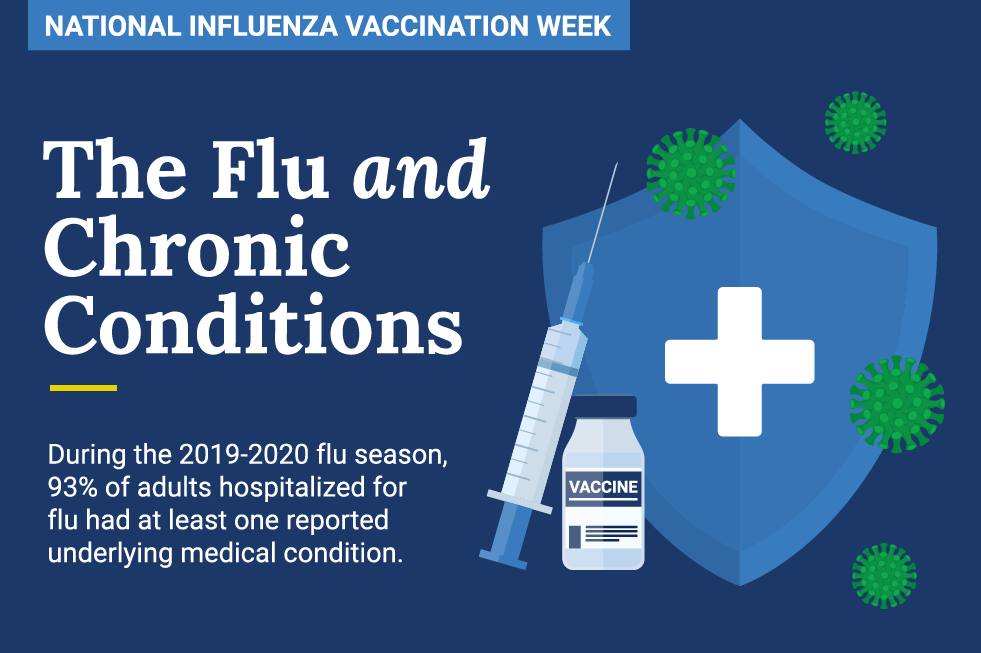The CDC’s National Influenza Vaccination Week, an awareness week meant to highlight the importance of flu vaccination, kicked off on Sunday. This flu season, it’s likely that flu viruses and the virus that causes COVID-19 will spread, so getting vaccinated is especially important. While it is typically recommended that people in the United States get a flu shot in September or October, as long as flu viruses are circulating, it’s not too late to get vaccinated.
According to the National Foundation for Infectious Diseases, individuals with chronic health conditions may not only be at risk for serious flu complications, but the flu could make their chronic health problems worse. During the 2019-2020 flu season, 93% of adults hospitalized for flu had at least one reported underlying medical condition. Below are some of the conditions that may present a high risk of flu complications.
Diabetes
The flu may raise sugar levels or suppress appetite, making it more difficult for people with diabetes to control their blood sugar.
Asthma
The flu can affect your lungs, causing inflammation and narrowing of airways. People with asthma may experience worsening symptoms when they contract the flu.
Heart Disease
People with heart disease are more likely to develop complications from the flu, including pneumonia, bronchitis and heart attack, among others.
Chronic Kidney Disease
Chronic Kidney Disease weakens the immune system which can make it more difficult to fight infections.
The Flu and COVID-19
There is some concern that hospitals will be overburdened this winter due to admissions for both COVID-19 and the flu. Getting a flu shot may help you stay out of the doctor’s office or hospital, leaving resources for people with other conditions, including COVID-19.
In addition to getting a flu shot, other measures you can take to decrease your chances of contracting the flu are the same as the precautions you take against COVID-19. Wash your hands frequently, avoid touching your eyes, nose or mouth and avoid close contact with people who are sick.
Get Vaccinated
The best way to prevent the flu is to get a flu shot. Make a plan to get vaccinated today! For more information, visit cdc.gov/flu. If you have questions about getting a flu shot, reach out to your doctor or Alphascript pharmacist.


Recent Comments